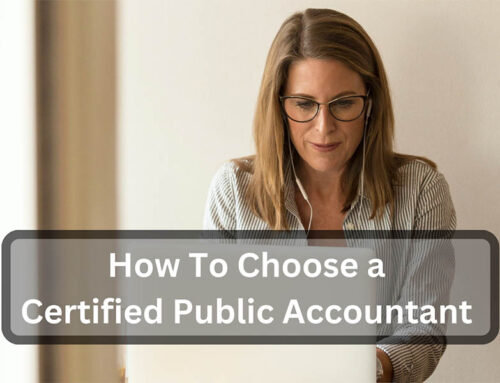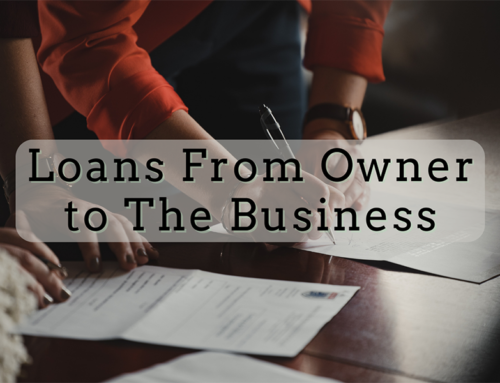You’re ready to make the next step and launch your small business. But now you face the hurdle of deciding on what business entity to be. If you’re new to the idea of business entities, you can read our last blog which introduces the five common options. If a sole proprietor sounds like the option that would best fit your needs read on! We’ll also touch on partnerships and what benefits they have.
Sole Proprietor
A sole proprietor is the simplest form of business entity because it is owned by you and just you. When you’re ready to start your business, you can just start! No need to register with your state – unless you need a business license – and you start working right away. As a sole proprietor you aren’t on the business’ payroll, you’re self-employed not receiving a paycheck. When you file your taxes, you’ll pay self-employment tax (Medicare and Social Security tax) on the net income that you (your business) made during the year – any losses will lower your personal income from the business which is something to remember. Since no taxes are being withheld during the year, you’ll need to plan for them; roughly sole proprietors are paying 28.9% tax to the IRS (15% for income taxes and 13.9% for the Self Employment Tax). For reporting the business operations and income, a sole proprietor uses a Schedule C form and is filed on April 15th as part of your personal 1040 return.
Another factor to be aware of as a sole proprietor is that you can receive distributions from the business if you have basis. Basis is the sum of: funds and/or property invested, loans by you, loans guaranteed by you, profits taxed on, minus losses, draws taken, and any loan repayments. Distributions are a payout of the business’ equity to you – which can come from the profits or money that was previously used as investments for the business. Only those with direct basis can receive a distribution. Distributions are not factored when you are determining net income, they are not an expense to the company but a return of equity or your investment.
Some benefits of being a sole proprietor:
- It’s inexpensive and easy to form. Just hang up your open sign and go!
- You have complete control – no one else has a say or can force changes.
- Easy tax preparation, since your business is not taxed separately.
With all the upsides some downsides are:
- It can be a challenge to raise funds when starting to grow your business.
- All the burden of the business is on you – you don’t have other employees or investors to help you.
- Unlimited personal liability. There is no legal separation between you and the business, thus you can be held personally liable for debts and obligations of the business in lawsuits.
The Hobby Issue
It is worth questioning – either by yourself or with a trusted business advisor – if you are running a business or a hobby. We talk about hobbies and how they are taxed in another blog. In the context of being a sole proprietor you need to watch out for being at risk of being classified as a hobby if you have sustained losses for 3 of 5 years. However, that 3 of 5 years is not a hard and fast rule. If audited, the IRS will come in to see if you are an active trade or business, meaning you are really trying to grow the company and earn a profit or is this something you just like to do. If they determine you are a hobby, you will have some negative tax consequences. You can see our blog on hobby issues for more details. If you have questions on if your business is verging closer to a hobby reach out to our team and we can help you understand more about what best suits your needs.
Partnerships
Partnerships are formed when two or more entities come together to form a business. Entities can be people or businesses. Like sole proprietors, in Virginia at least, no registration is required with the state – but it is best to check with your state and local regulations regarding the matter. A partnership is a pass-through entity – income is passed through to the partners for them to pay the tax on rather than the business itself. This means the partners will pay the self-employment taxes on their individual net income along with any income tax owed on the income from the business. A partnership files form 1065 – due March 15th, to report its operations and income. When the return is prepared a form K-1 is generated at the same time and provided to the partners reporting how much income they must report on their personal returns.
Partners can receive a guaranteed payment from the partnership – but this is different from a paycheck. With a guaranteed payment, the partnership decides on how much a partner will receive and this is given no matter if the business faced a loss or not. That payment is a lump sum with no taxes withheld from it, and the partner who receives it will still need to pay taxes on it. But those payments are viewed by the IRS as an expense and lower the net income of the business. In addition to guaranteed payments, partners can receive distributions from the business if they have basis as with sole proprietors.
Need More Information?
As a business owner you’ve got a lot on your plate, figuring out what answers you still need doesn’t have to be one of them. We’re here to help you understand what being a sole proprietor or partnership in terms of tax and limited legal sense means. You can schedule a meeting now with one of our experienced team members, give us a call at (703) 912-7862, or send us an email.






